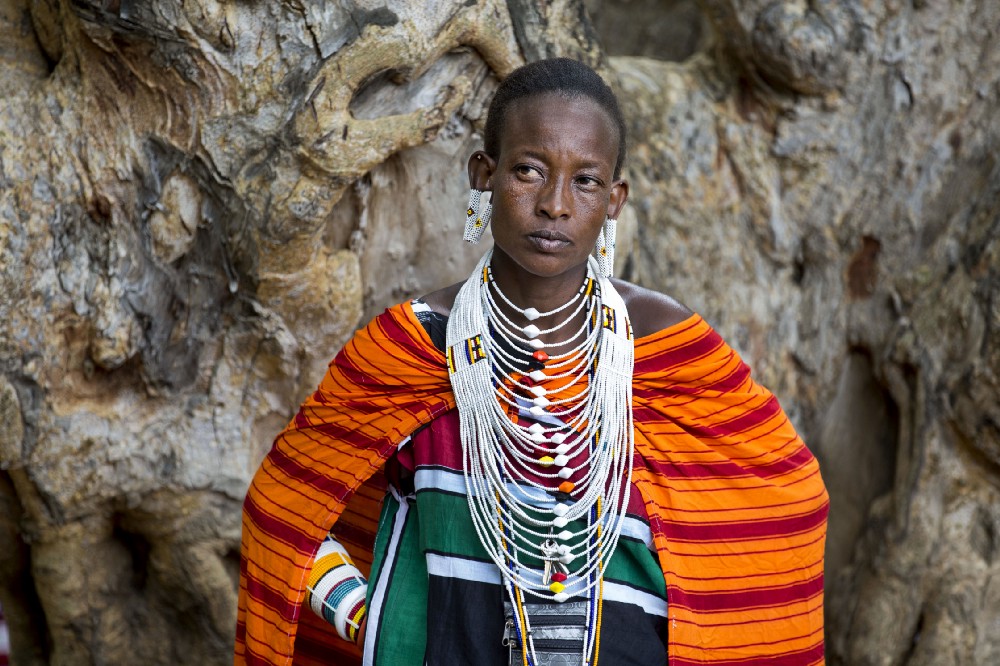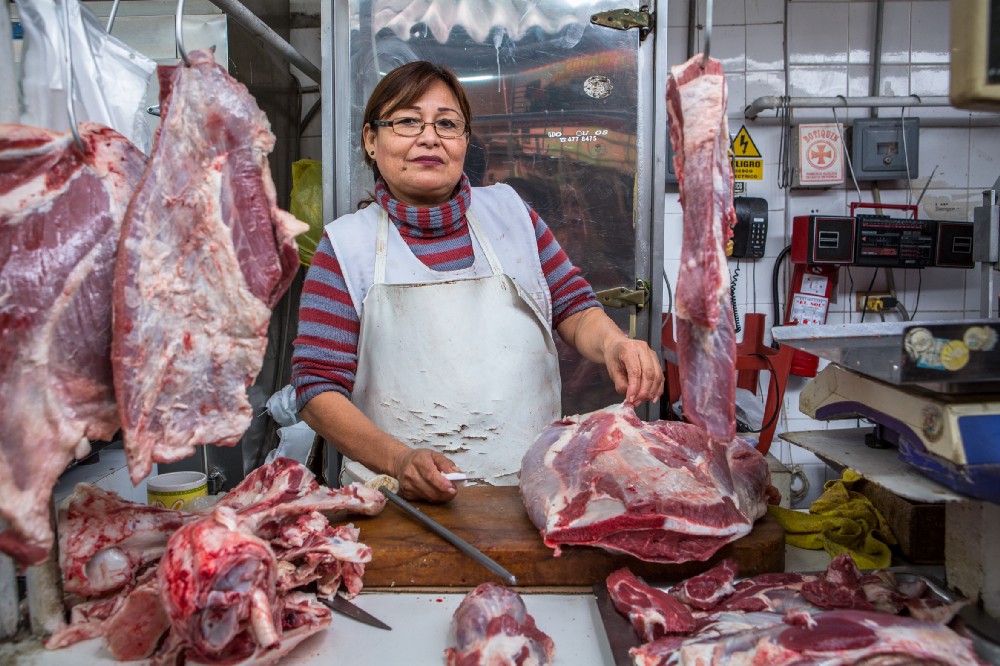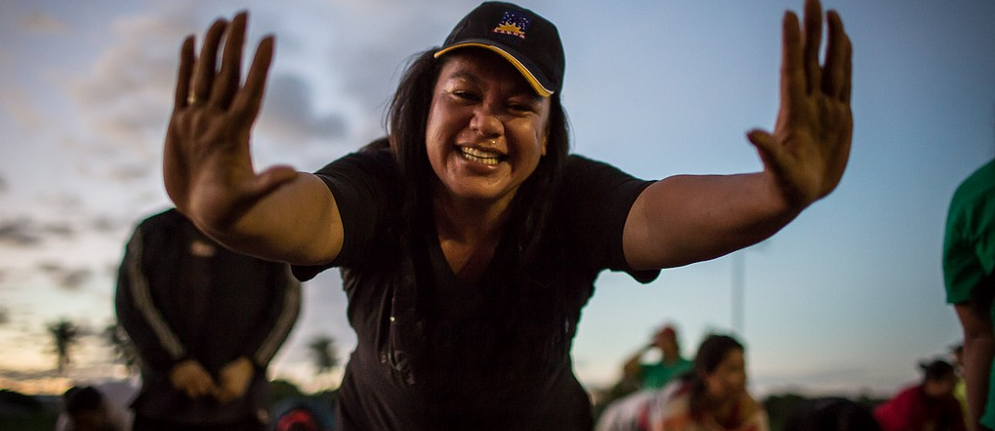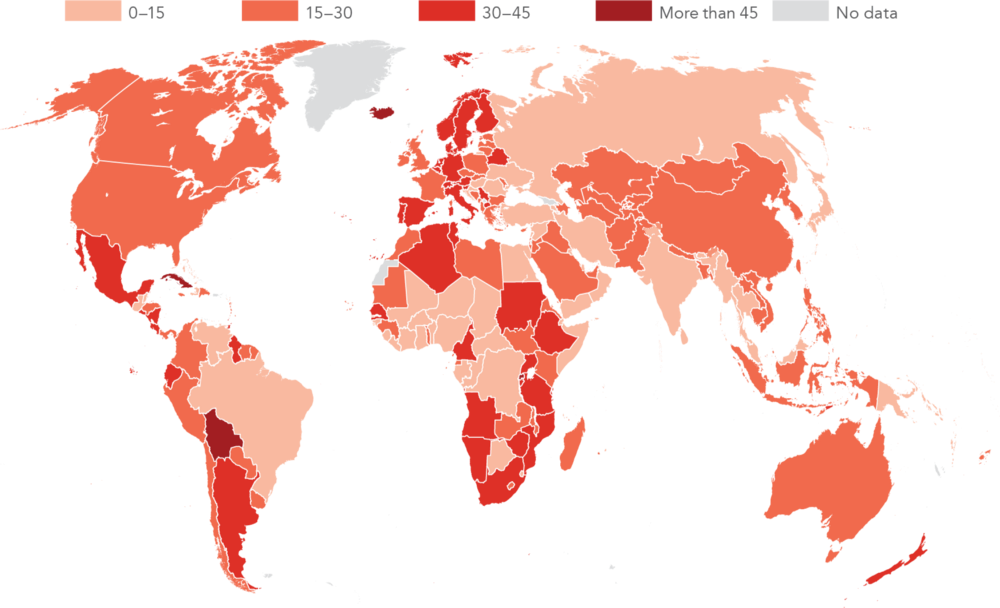These Statistics About Gender Inequality Will Keep You Up at Night

A member of the Maasai tribe in Shompole, Kenya
(Photo: Jonathan Torgovnik/Reportage by Getty Images)
$95 billion a year
Amount of money estimated to be lost from economies in sub-Saharan Africa each year because women have lower participation in the paid labour force. (Source: UNDP, 2016)
Active participation in the labour force is not only an economic driver. It also works to counteract gender power imbalances and contributes to women’s empowerment.

Carolina Pacheco Romero lives in Lima, Peru; one of only 18 countries in a recent World Bank study with no legal differences between women and men.
(Photo Credit: Juan Arredondo / Getty Images)
150
Number of countries that have at least one law treating women and men differently (e.g., applying for a passport, conferring citizenship to their children, having their testimony carry the same evidentiary weight in court). (Source: World Bank, 2016)
The Beijing Platform for Action called for countries to “revoke any remaining laws that discriminate on the basis of sex” — but these laws still persist.

A woman participates in an early morning fitness program in Tonga, where a recent law explicitly criminalizes marital rape.
(Photo: Connor Ashleigh/AusAID)
112
Number of countries that do not criminalize marital rape. There is also no specific law against domestic violence in 49 countries and no legislation to address sexual harassment in 45 countries. (Source: World Bank, 2016)
The Sustainable Development Goals include a target to “Eliminate all forms of violence against all women and girls in the public and private spheres.” But work is still needed to ensure laws are in place and enforced, and to make sure countries are adequately measuring and tracking progress towards this target.
23%
Average share of parliamentary seats held by women across the globe in 2016. Only two countries (Rwanda and Bolivia) had 50 per cent or more women in parliament. (Source: Inter-Parliamentary Union, 2017)
A study by the Inter-Parliamentary Union in 2008 conducted in 110 countries showed that women parliamentarians were more likely to prioritize issues such as childcare, equal pay, parental leave, pensions, reproductive rights and protection against gender-based violence.
Women are under-represented in national parliaments in most countries

Proportion of seats held by women in national parliaments (percent), 2016
[Source: Inter-Parliamentary Union/World Development Indicators]
5,000
Number of women murdered in honour killings every year, based on the latest available estimate. That’s nearly 100 every week, or 13 honour killings every day. (Source: UNFPA, 2000)
Because of the secretive nature of honour killings and a likely desire to conceal the act, these figures are most likely underestimates.
Hope for better
While these five facts are shocking and disturbing, there is reason to be optimistic. Change is possible, and it’s already starting to happen. Armed with data-driven solutions, many people are seizing the moment and fighting for equality around the world. Equal Measures 2030 is proud to be a part of that global movement.


